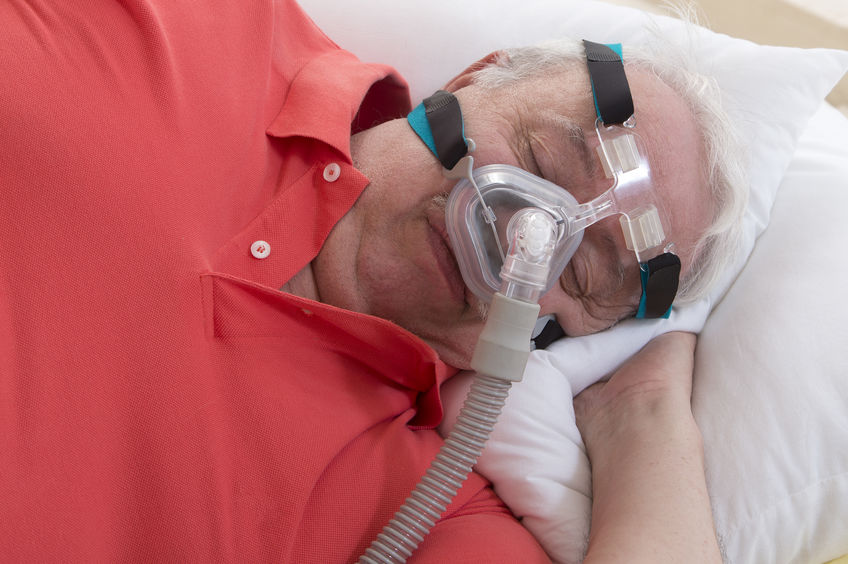Breathing Well During Sleep
In many cases, sleep apnea is often overlooked as just snoring. However, doctors estimate the condition impacts over 30 million Americans, with only 6 million officially diagnosed. Sleep apnea occurs when an individual stops breathing during sleep, if only momentarily. In response to the loss of oxygen, the brain sometimes attempts to wake up the individual. This process results in poor sleep, insomnia, irritability, and fatigue. Doctors and sleep specialists often recommend a continuous positive airway pressure (CPAP) machine to treat the condition. However, certain lifestyle changes can improve sleep and even treat sleep apnea without the need for a CPAP machine.

Understanding sleep apnea
There are different forms of sleep apnea. Obstructive sleep apnea (OSA) is the most common form, where the throat muscles relax and block airflow into the lungs. Less commonly, central sleep apnea (CSA) occurs when the brain fails to signal to the muscles that control breathing. People with sleep apnea are often loud snorers or wake up gasping for air. Other symptoms can include headaches, daytime sleepiness, and poor focus. If left untreated, sleep apnea can have dangerous long-term effects on health and well-being. Sleep apnea sufferers are more likely to develop heart disease, diabetes, metabolic disease, and liver disease. Studies even suggest that untreated sleep apnea can reduce life expectancy.
With or without your CPAP?
A continuous positive airway pressure machine helps to send air through the nose and mouth during sleep. This additional air creates pressure in the airway, which prevents the muscles from relaxing and obstructing the throat. Today’s advanced CPAP machines can regulate the air pressure and also provide data on sleep quality. Studies show that consistent use of CPAP machines can improve breathing during sleep, reduce snoring, and increase energy. Despite the benefits, some individuals prefer to avoid using the device. The machine can be uncomfortable for many, with some individuals even feeling claustrophobic. CPAP machines are also loud, impacting sleep for other individuals in the room. Bloating, dry mouth, and nosebleeds are other possible side effects. Treatment of sleep apnea without a CPAP machine requires a combination of lifestyle changes that improve sleep quality over time.
Effective lifestyle changes
With or without the use of CPAP, lifestyle changes play a significant role in improving sleep apnea. For starters, doctors recommend weight management as the most effective lifestyle change. Obesity is the biggest risk factor for sleep apnea. Excess tissue around the neck area can obstruct the airways during sleep. Consider a balanced diet, regular exercise, and other weight loss strategies. Additionally, people with sleep apnea should quit smoking, limit drinking, and avoid the use of sedatives. Studies show smoking increases inflammation and fluid retention in the throat, increasing the risk of sleep apnea. Heavy alcohol and sedative use impacts breathing during sleep and relaxes the muscles in the airways. Stress management and regular medical check-ups can also benefit people with sleep apnea.
Optimize your sleep
Lifestyle changes can take time to deliver results. In the meantime, small changes before and during sleep can help improve sleep apnea symptoms. Consciously changing sleep positions, for instance, can help. Elevating the head, sleeping on the side, or using a special pillow are all effective methods. Such positions ensure the muscles do not relax and fall to the back of the throat. Doctor-recommended oral devices are also effective during sleep to keep the jaw and tongue in place. Optimizing healthy sleep is also an effective way to reduce sleep apnea. Strategies include falling asleep at the same time nightly, avoiding bright devices before bed, and setting up a comfortable environment.
Take sleep seriously
Apnea while sleeping is often overlooked, but if left untreated, the condition severely impacts the quality of life. Enhancing sleep quality can improve productivity and overall health. CPAP machines can significantly improve sleep apnea symptoms. However, lifestyle changes can provide long-term relief and restful sleep. Speak with a doctor or sleep specialist to better understand sleep apnea and how to manage the condition.




